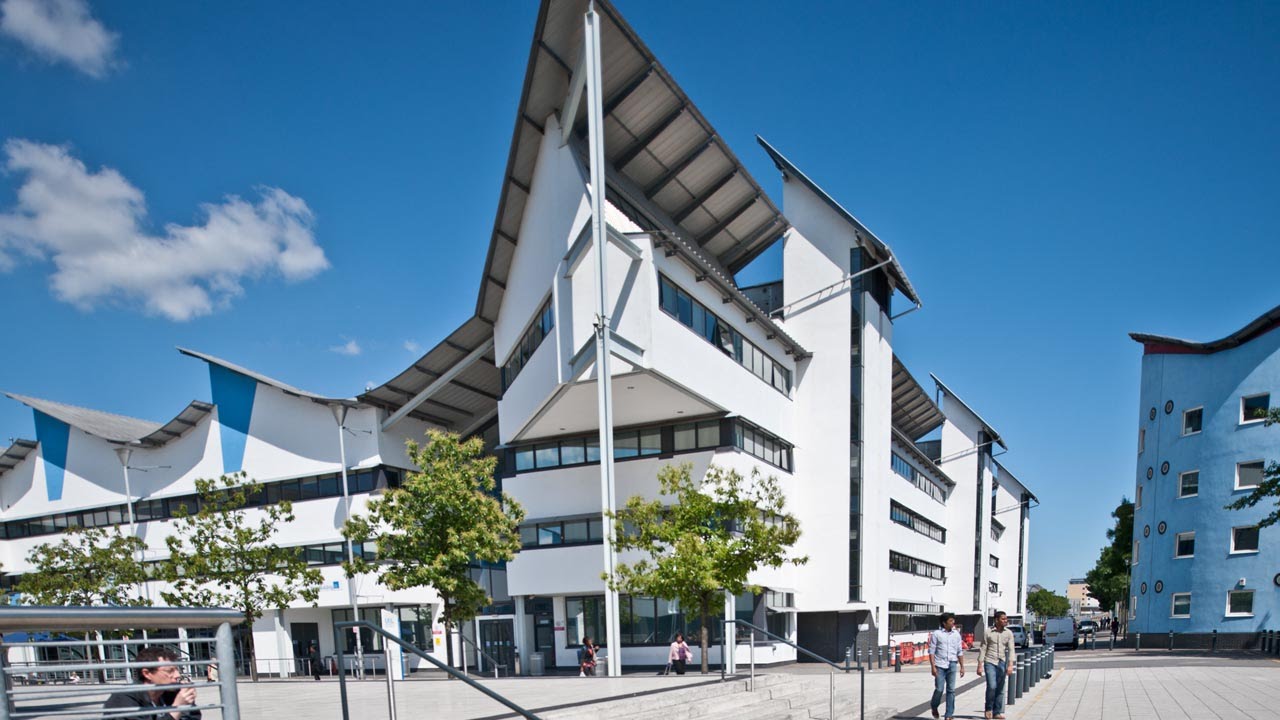University Of East London Hosts Educom Festival
The University of East London’s School of Education and Communities (Educom) hosted its exciting Festival of Research on 22 June as part of the University’s 125th anniversary celebrations.
The event brought together academics, students and guests in a series of presentations, displays and games to showcase the vibrant nature of research that
Educom
is currently undertaking.
The festival reflected an impressive array of global and local work, innovative ideas, and unique research methodologies that have the power to shape our world.
Matt Bellgard
Opening the festival, Dean of Educom
Mr Richard Harty
said he was excited to see such a range of activity on display and called the event “a celebration”.
He told attendees, “A lot of this research is ground-breaking and a lot has huge impact in the community but it’s not as well-known as it should be – and today is the day we change all that and make people aware of what we do.”
He said that the festival kickstarted the push towards the national research and funding exercise known as REF, which has just completed its seven-year cycle and begins again heading towards the next release in 2028. “It’s a running start, not a standing start,” he added.
Afterwards he said, “The festival of research was an important milestone on our journey. We are embarking on a path that will enhance and promote our research impact across a range of disciplines within the School. The accomplishments of Educom over the past year have been truly transformational. We are reshaping the very fabric and nature of our research culture – and long may this continue.”
Guest of honour was UEL’s new Pro-Vice Chancellor, Impact and Innovation,
Professor Matt Bellgard
, pictured.
He said, “It was hugely exciting to see the range of work going on at the School of Educom. The Festival of Research embodied the very essence of our diverse research community. It celebrated the multitude of paths and forms through which we approach research, whether it be in education, migration, health and wellbeing, or diversity.
“The beauty lies in how these seemingly disparate fields intertwine and connect in ways that may not always be obvious at first glance. The connections that emerge from this dynamic exchange of ideas seed new thinking. The potential is enormous.”
Attendees and organisers of the Educom Festival of Research
The festival was organised by the school’s Impact and Innovation team,
Dr Meera Tiwari
and
Dr Susannah Pickering-Saqqa
supported by research administrator Sanzida Akter.
Dr Tiwari said, “We are thrilled to declare the Festival of Research 2023 a resounding success. This event has exceeded our expectations in every way, showcasing significant research, fostering collaboration, and inspiring a sense of curiosity and exploration among all attendees.
“The atmosphere was filled with stimulating conversations, as academics, students, and practitioners from diverse backgrounds came together to exchange ideas and ignite the sparks of innovation, hopefully creating new collaborations that could result in new investigations.”
The displays told of the global reach and impact of research activity at Educom. They included, for example: work on dignity, gender and period poverty; outdoor learning and wellbeing; inclusive education for children with disabilities in Somaliland; and the implementation of the UN’s Sustainable Development Goals in Newham and Tower Hamlets.
Throughout the day, participants immersed themselves in reflective activities, including a game that explored the challenging nature of global development and the fraught possibilities that come with high level decision-making. This interactive game served as a reminder of the double-edged sword that development can be, urging attendees to consider the unintended consequences of their actions.
The Festival of Research 2023 also saw the launch of two books that delved into key areas of study.
Stephen Hobden
In “
Critical Theory and International Relations:
Knowledge, Power and Practice” by Stephen Hobden, readers are exposed to the dynamic field of critical theory within the realm of international relations, evaluating the foundations of critical theory and demonstrating how external ideas have been adopted and adapted within the discipline, challenging traditional paradigms.
Dr Susannah Pickering-Saqqa’s “
Researching Development NGOs
: Global and Grassroots Perspectives” provides an analysis of NGOs involved in development work. Unlike conventional evaluations, this book focuses on enabling researchers and practitioners to better understand the operations and methodologies employed by NGOs, supported by recent case studies, “dilemma boxes,” and discussion questions.

